The content of the article
Young mothers are very closely watching the behavior, health and condition of their baby. Especially if the child is the first and the woman does not know all the subtleties of caring for the baby. Therefore, in the event of any unusual situations, parents worry about whether it is normal and whether the child should be helped. Today we will talk about hiccups of a newborn - how and why it arises, whether it is necessary to fight hiccups and what to do if the hiccups do not pass.
Causes of hiccups of the newborn after feeding
Hiccup is a sharp contraction of the diaphragm in the form of jolts. The diaphragm is a muscle that separates the abdominal and chest cavity. In fact, hiccups are a congenital reflex that helps us survive inside the womb, and hiccups help circulate fluids inside the lungs of the fetus.After birth, the hiccups gradually lose their purpose, and the reflex slowly fades away. That is why hiccups most often occur in newborns and much less often in adults. So, let's try to figure out why the babies of the first month of life hiccup after feeding.
- Most often, hiccups occur in the event that the child during sucking swallowed not only milk but also air. This can happen for several reasons. Firstly, if the attachment is wrong, an absolute vacuum is not created between the nipple areola and the baby’s mouth. Secondly, the child can swallow air, if the milk from the breast flows very intensively and the baby simply does not have time to swallow, he has to constantly break away from the breast. In addition, the crumb can swallow air if he has a blocked nose, and he is forced to constantly tear his mouth from his chest to breathe. If the baby has a stomach ache, it also constantly breaks away from the breast and cries.
- If the baby is bottle-fed, the reason may be in the wrong bottle, namely the nipple. If the hole in the nipple is too large, the baby can swallow the contents very quickly, along with the air.
- Hiccups can occur in case of overeating. If the stomach increases in size and stretches, it presses on the diaphragm, it contracts and there is a hiccup.
- Sometimes the cause of hiccups can be the formation of gases in the intestines of a child. The fact is that the baby’s gastrointestinal tract is not ripe yet, so we may encounter colic, frequent hiccups, diarrhea, etc.
- Thirst can be the cause of hiccups, in this case the mucous membrane of the baby's digestive tube simply dries out.
Hiccups can occur not only after feeding, but also after strong crying. In this case, the baby also easily swallows a large amount of air. In addition, hiccups can be the result of hypothermia. If the baby hiccups for a long time, first touch his nose, legs and arms. If the limbs are cold, it is probably the cause of hiccups in cool air. Often hiccups appear on the background of fear and a strong nervous shock. A child may be frightened by a sudden flash of light, loud sound, etc.
How to feed a child so that he does not hiccup
Many moms try to protect their child from overeating and restrict the baby to eat. In fact, this is not worth doing. Anything extra baby in any case belch. It is better to adhere to feeding on demand, you need to offer the baby a breast for any of his squeaks. In this case, the baby eats often, but in small portions. If you follow the rules of feeding by the hour, the baby will be hungry for quite a long time and, when he receives the cherished breast, starts drinking milk quickly and greedily, which certainly leads to the ingestion of air.
If the child is an artificial artist, you need to carefully stick to a certain portion of the mixture. Some mothers, thinking that the crumb was not full, offer him a supplement, making this a mistake. In many cases, the baby just wants to satisfy his sucking reflex, so he cries. So kiddies need a nipple and mom's presence nearby. Pay attention to the size of the holes in the bottle. If the baby does not have time to swallow the mixture, it is constantly forced to turn away so as not to choke, most likely, the hole is very large and the nipple needs to be changed.
It is very important not to overfeed the baby, because excess food and overheating increase the intensity and frequency of infant colic. In general, practically every child has colic to varying degrees, and they rarely depend on the mother's diet. Colic is caused by the immaturity of the baby’s gastrointestinal tract; it is an absolutely normal phenomenon that you should simply experience. Hiccups almost always accompany colic. To get rid of excess air in the stomach and intestines, you need to do a baby massage the tummy, exercise "bicycle" legs, you need to lay out the child on his stomach, use a warm diaper.All these simple rules will help you reduce the amount of gas in your stomach.
What to do so that the child does not hiccup
Here are some more tips to help you get rid of the hiccups of a newborn.
- After each feeding, it is necessary to hold the baby “column” for some time, that is, in an upright position. Take the baby in your arms, lean back slightly and place the baby on the chest. Be sure to hold the crumbs head. In an upright position, the air will quickly come out, a burp will happen, the baby will stop hiccupping and will not burst valuable mother's milk.
- If the child hiccups without stopping, take him a column and walk around the room. Amplitude steps will help the baby quickly get rid of unwanted air in the stomach. A light massage will help speed up the process - just drive your palm across the back of the child so that the bubbles quickly find the way out.
- If the child hiccups persistently and continuously, perhaps he is cold? Touch the tip of the baby - it usually serves as an excellent indicator of its condition. If the nose is cold, you need to dress warmly. Check the diaper, the baby may be cold because the butt is wet.
- If the baby swallows a lot of air when feeding, when his nose is clogged, it is necessary to use vasoconstrictor drops so that the baby can suck the breast normally. But only those prescribed by the doctor, respecting the dosage of the medicine.
- With prolonged hiccups, try not to give your baby a breast, but a little water from a spoon or bottle.
- If the hiccups began due to fright, try to calm the baby - take him in your arms, hold yourself close, give a breast, talk to him with gentle words. Gradually, the crumb will calm down and the hiccups will pass.
- If the hiccups do not pass more than 30 minutes, you can try this recipe. Prepare a weak decoction of chamomile - about a teaspoon of inflorescences per liter of boiling water. When the decoction is infused and cool, drip a few drops under the tongue to the baby with a pipette. Chamomile relieves muscle spasm, and the diaphragm will calm down.
- Here is another effective way to get rid of hiccups. Type a tub of warm water and drop the crumbs there. The tummy will warm, and the excess air will quickly find a way out. This is a great way to get rid of hiccups and colic.
If a child has hiccups more than three times a day and hiccups last longer than half an hour, this is most likely a pathological condition.This happens with various neurological abnormalities, and may also be due to hypoxia in the womb. In this case, you need to show the child to a neurologist.
There is a sign that says that during hiccups someone remembers a hiccup person. Your baby has just been born, but many are already thinking about it - parents, grandmothers, grandfathers, relatives. Well, how can you not begin to hiccup? Hiccup is an absolutely normal physiological manifestation, all kids hiccup. But in our power to save the baby from this discomfort and eliminate the cause of hiccups. Be close to your child - this is the best remedy for all problems.
Video: what to do if a newborn hiccups after eating

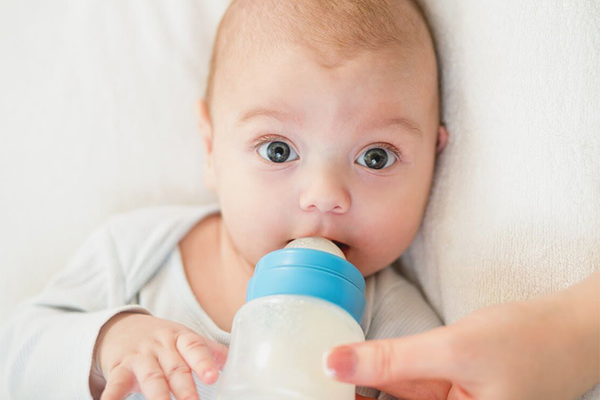
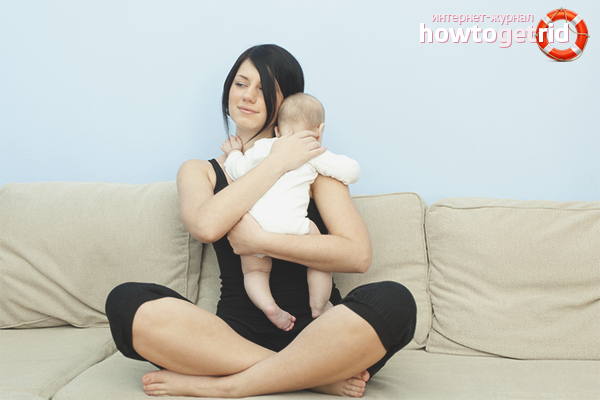

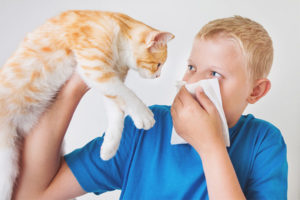
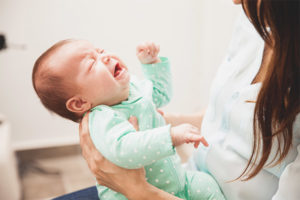

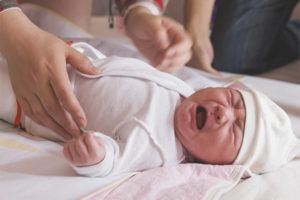
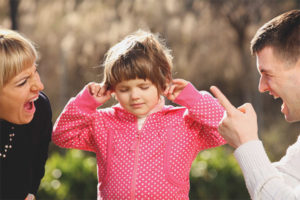
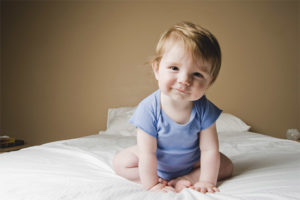
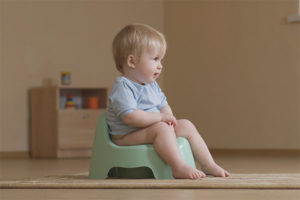
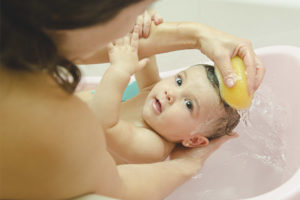
To send